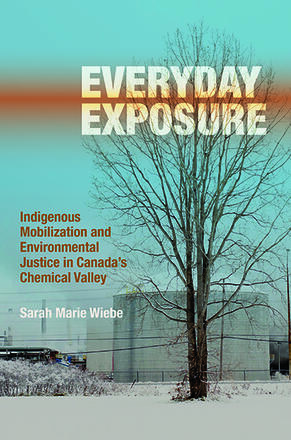
Everyday Exposure
Indigenous Mobilization and Environmental Justice in Canada’s Chemical Valley
In chronicling a First Nation’s fight for health and environmental justice, this book makes a compelling case for how policy making needs to be transformed to incorporate the concerns of Indigenous communities.
Description
Surrounded by Canada’s densest concentration of chemical manufacturing plants, members of the Aamjiwnaang First Nation express concern about a declining male birth rate and high incidences of miscarriage, asthma, cancer, and cardiovascular illness. Everyday Exposure uncovers the systemic injustices they face as they fight for environmental justice. Exploring the problems that conflicting levels of jurisdiction pose for the creation of effective policy, analyzing clashes between Indigenous and scientific knowledge, and documenting the experiences of Aamjiwnaang residents as they navigate their toxic environment, this book argues that social and political change requires a transformative “sensing policy” approach, one that takes the voices of Indigenous citizens seriously.
Awards
- Winner, Charles Taylor Book Award 2017
Reviews
Based on extensive time spent in the community learning directly from Aamjiwnaang’s citizens and experiencing the community’s pollution crisis in an embodied and empathetic way, this book is a must-read for anyone who wants to understand the legacies of environmental racism in Canada today.
- Warren Cariou is an associate professor of English at the University of Manitoba
Everyday Exposure provides a thorough analysis of the lack of health and environmental protections for First Nations peoples at all levels of government and identifies the need for government regulation to redress what have become complex reporting practices, a better understanding of cumulative environmental effects, and improved health services being administered by Health Canada.
- Nadine Hoffman, Natural Resources, Bennett Jones Library, University of Calgary